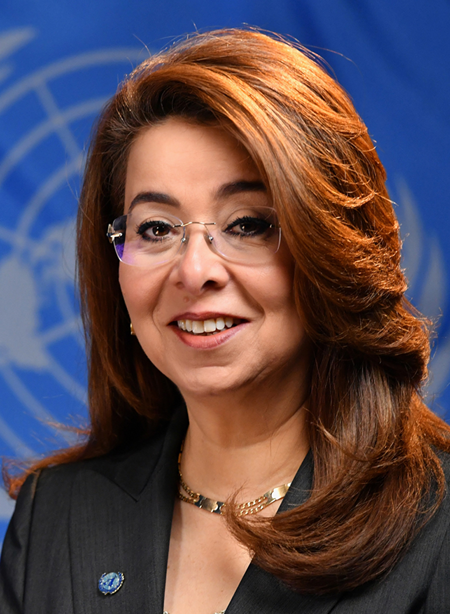Editorial
Organized Crime in Armed Conflicts and Other Situations of Violence
-
- Published online by Cambridge University Press:
- 10 February 2023, pp. 569-574
-
- Article
-
- You have access
- HTML
- Export citation
Speech
Speech by Mirjana Spoljaric Egger, President of the International Committee of the Red Cross: Delivered at the Graduate Institute, Geneva, 28 November 2022
-
- Published online by Cambridge University Press:
- 31 March 2023, pp. 575-583
-
- Article
- Export citation
Testimonies
Hidden stories: Survivors of organized crime
-
- Published online by Cambridge University Press:
- 14 February 2023, pp. 584-600
-
- Article
- Export citation
Interview
The humanitarian impact of armed violence on communities – the Americas perspective: Interview with Sophie Orr: Regional Director for the Americas, ICRC
-
- Published online by Cambridge University Press:
- 08 February 2023, pp. 601-607
-
- Article
- Export citation
(Transnational) Organized crime and corruption in conflict settings: Interview with Ms Ghada Waly
-
- Published online by Cambridge University Press:
- 31 March 2023, pp. 608-617
-
- Article
- Export citation
Research Article
Can criminal organizations be non-State parties to armed conflict?
-
- Published online by Cambridge University Press:
- 23 August 2022, pp. 618-636
-
- Article
- Export citation
Correction
Can criminal organizations be non-State parties to armed conflict? – CORRIGENDUM
-
- Published online by Cambridge University Press:
- 19 September 2022, p. 637
-
- Article
- Export citation
Research Article
Negotiating with organized crime groups: Questions of law, policy and imagination
-
- Published online by Cambridge University Press:
- 23 September 2022, pp. 638-651
-
- Article
- Export citation
Targeting drug lords: Challenges to IHL between lege lata and lege ferenda
-
- Published online by Cambridge University Press:
- 10 February 2023, pp. 652-673
-
- Article
- Export citation
Harvesting vulnerability: The challenges of organ trafficking in armed conflict
-
- Published online by Cambridge University Press:
- 07 September 2022, pp. 674-705
-
- Article
- Export citation
The regulation of crimes against water in armed conflicts and other situations of violence
-
- Published online by Cambridge University Press:
- 10 February 2023, pp. 706-734
-
- Article
-
- You have access
- Open access
- HTML
- Export citation
The question of definition: Armed banditry in Nigeria's North-West in the context of international humanitarian law
-
- Published online by Cambridge University Press:
- 18 July 2022, pp. 735-749
-
- Article
- Export citation
Symbiosis in violence: A case study from Sierra Leone of the international humanitarian law implications of parties to the conflict engaging in organized crime
-
- Published online by Cambridge University Press:
- 18 August 2022, pp. 750-771
-
- Article
- Export citation
Opening Pandora's box: The case of Mexico and the threshold of non-international armed conflicts
-
- Published online by Cambridge University Press:
- 07 September 2022, pp. 772-794
-
- Article
- Export citation
Is Rio de Janeiro preparing for war? Combating organized crime versus non-international armed conflict
-
- Published online by Cambridge University Press:
- 02 June 2023, pp. 795-827
-
- Article
- Export citation
Militarization and privatization of security: From the War on Drugs to the fight against organized crime in Latin America
-
- Published online by Cambridge University Press:
- 11 April 2023, pp. 828-848
-
- Article
- Export citation
Crime wars: Operational perspectives on criminal armed groups in Mexico and Brazil
-
- Published online by Cambridge University Press:
- 07 September 2022, pp. 849-875
-
- Article
- Export citation
Librarian's Pick
Intersections in International Cultural Heritage Law Edited by Anne-Marie Carstens and Elizabeth Varner
-
- Published online by Cambridge University Press:
- 17 October 2022, pp. 876-881
-
- Article
- Export citation
Selected Articles
The legal limits to the destruction of natural resources in non-international armed conflicts: Applying international humanitarian law
-
- Published online by Cambridge University Press:
- 26 April 2023, pp. 882-913
-
- Article
-
- You have access
- Open access
- HTML
- Export citation
The Rif War: A forgotten war?
-
- Published online by Cambridge University Press:
- 13 December 2022, pp. 914-946
-
- Article
- Export citation



